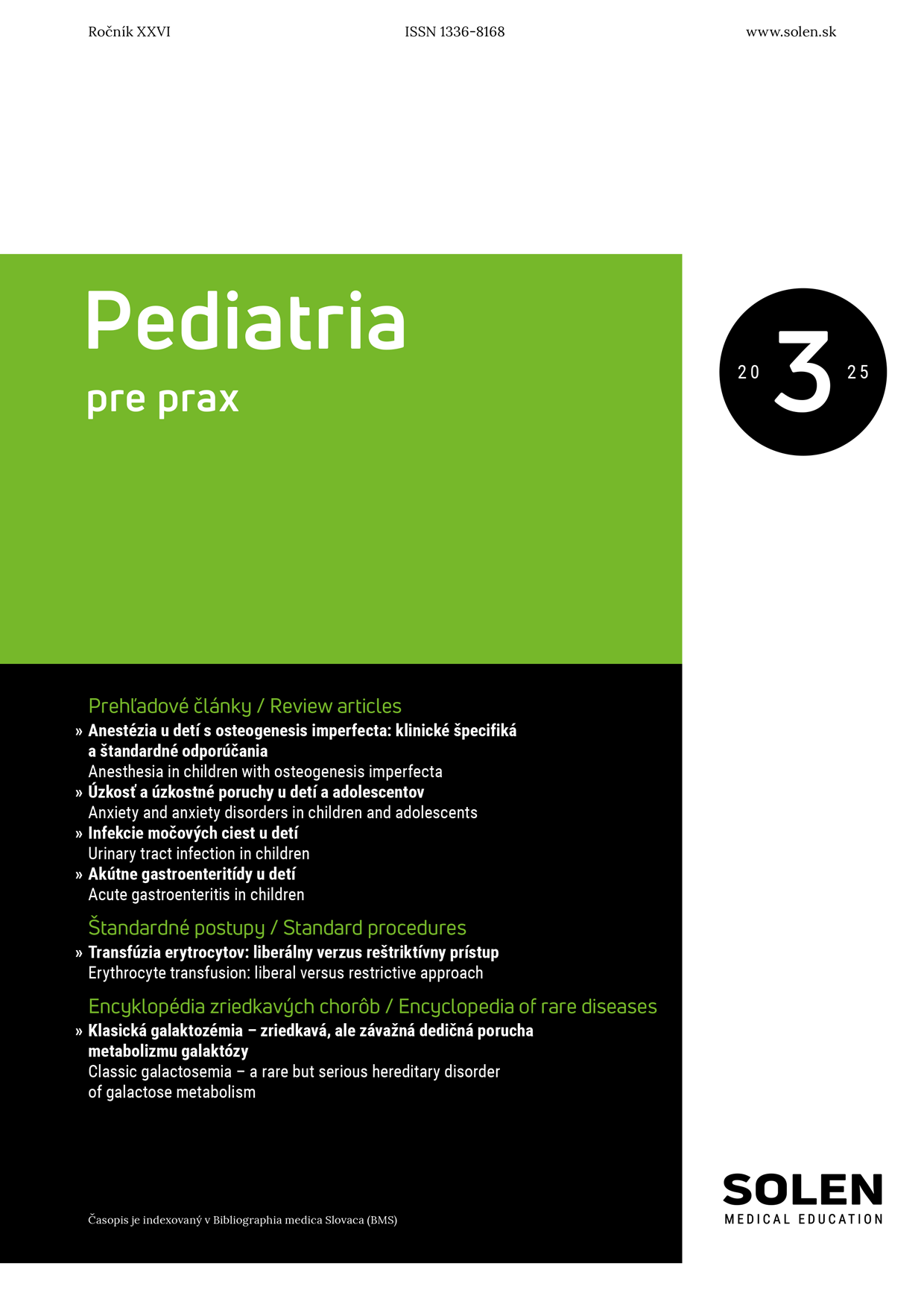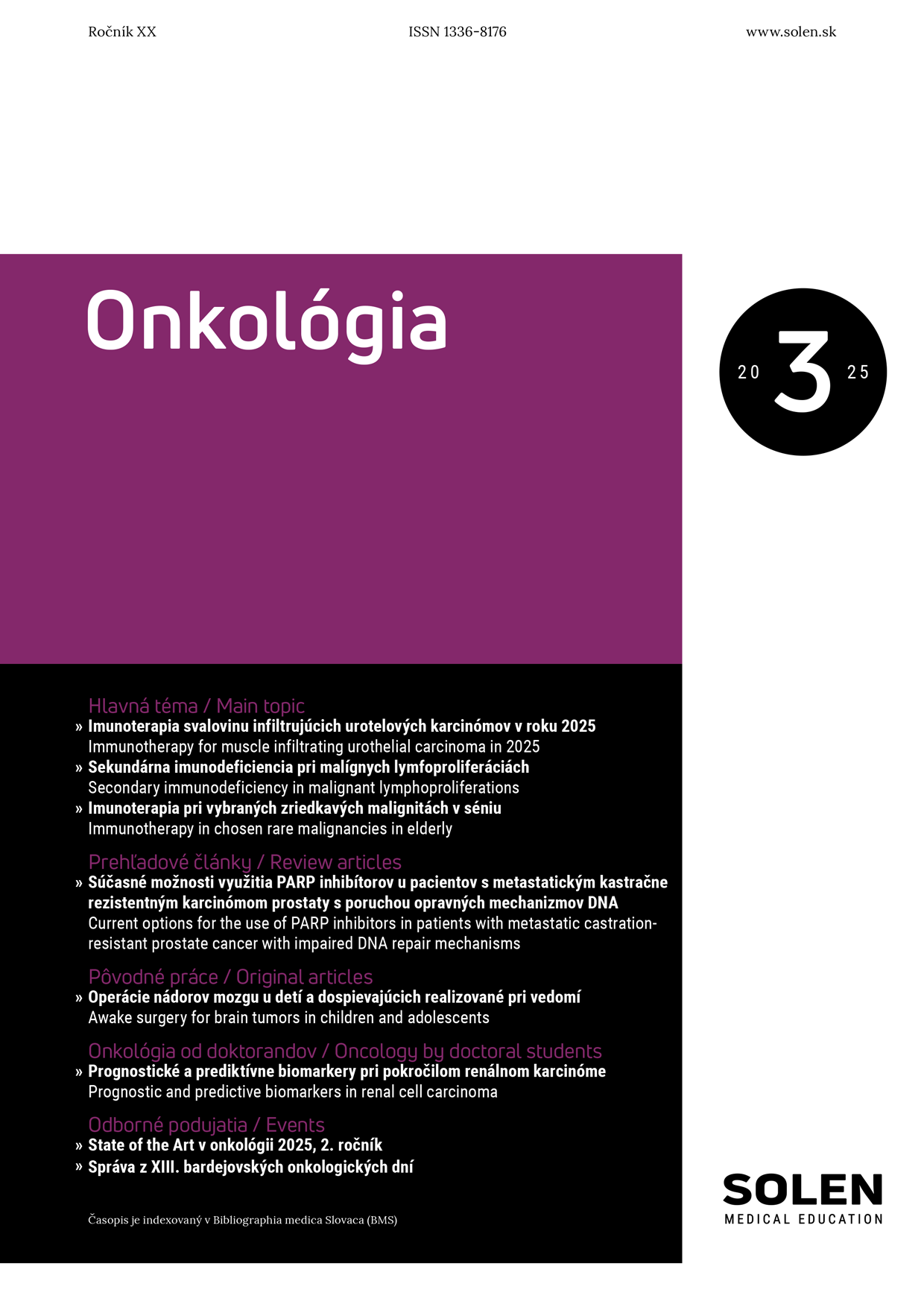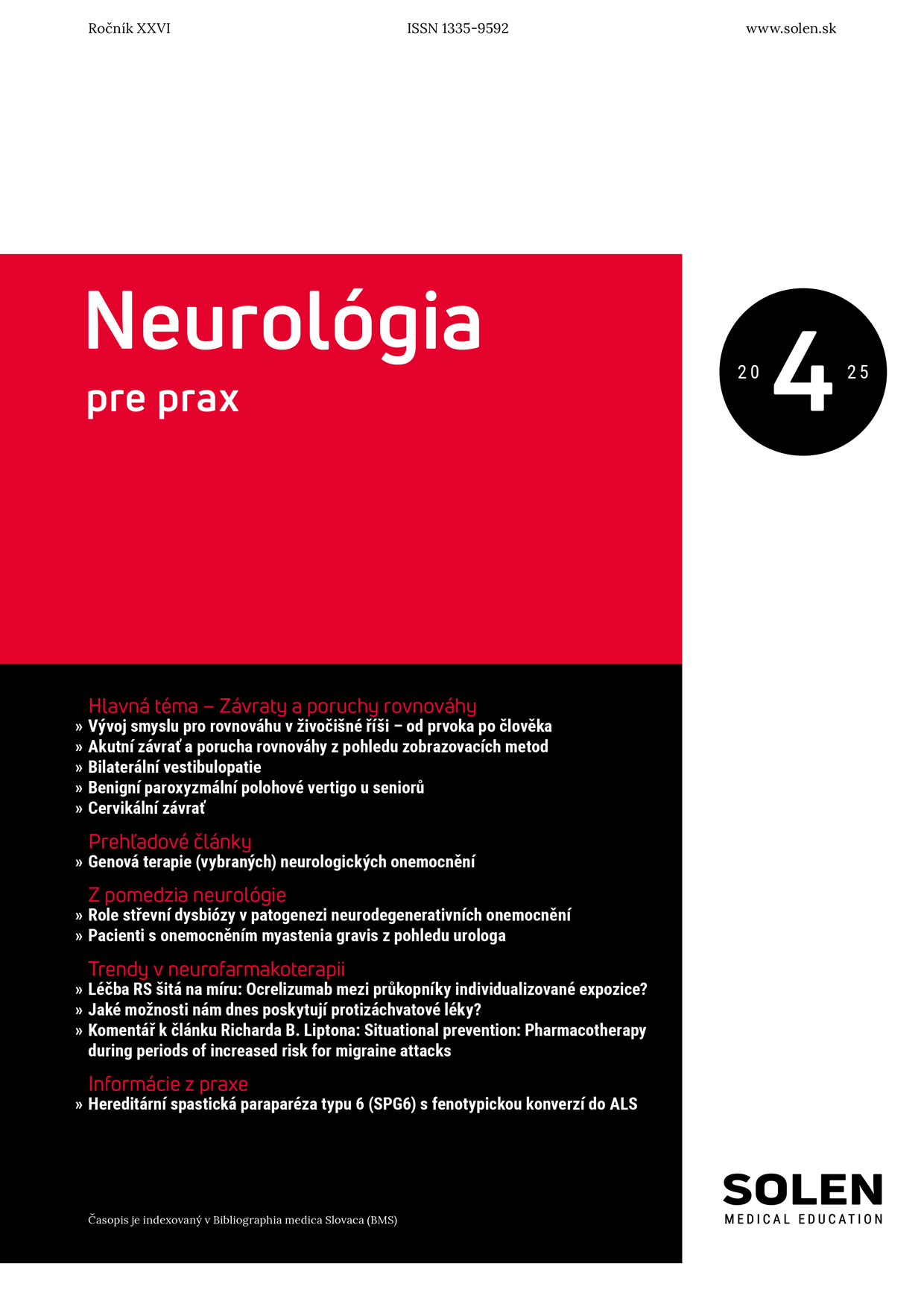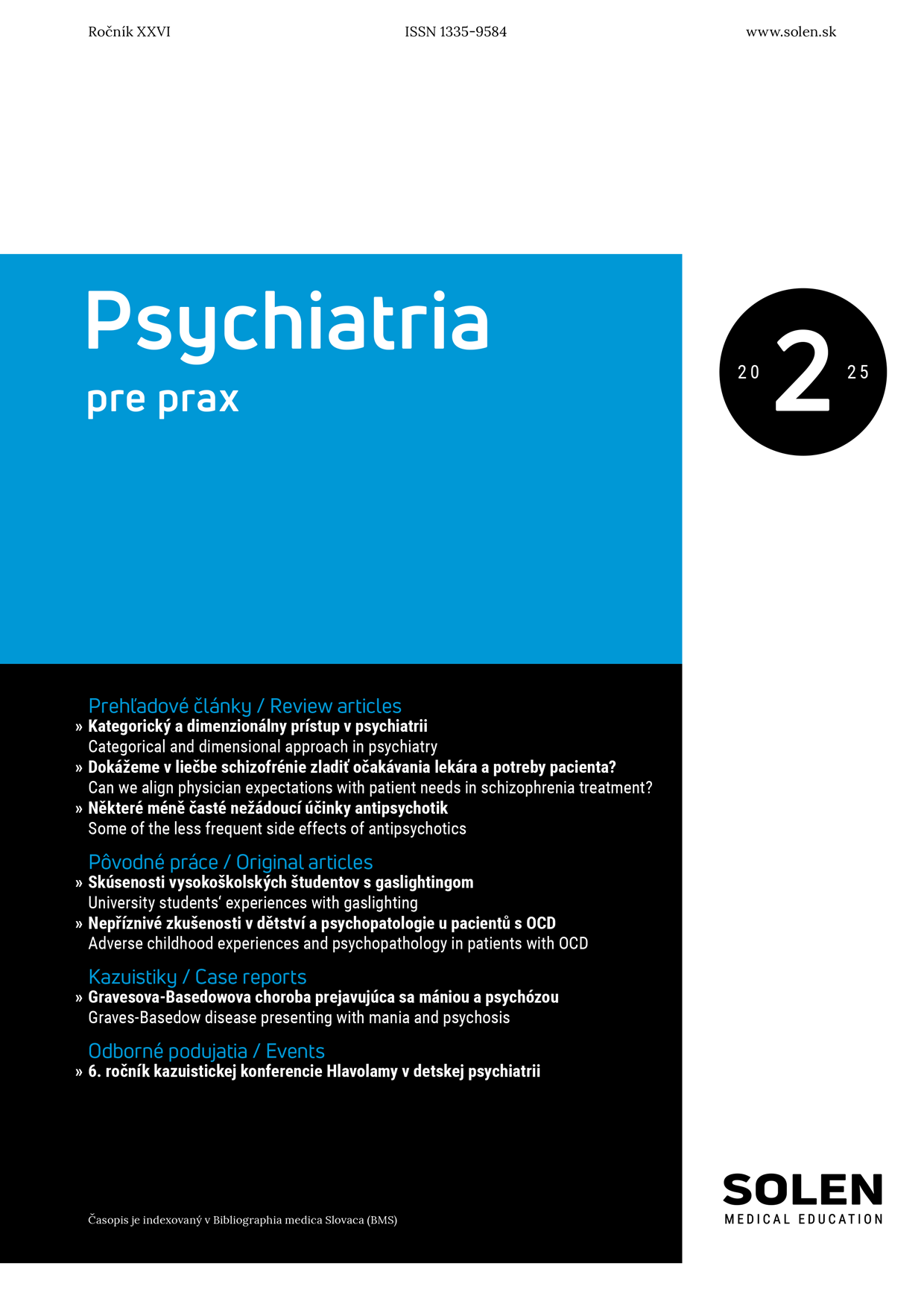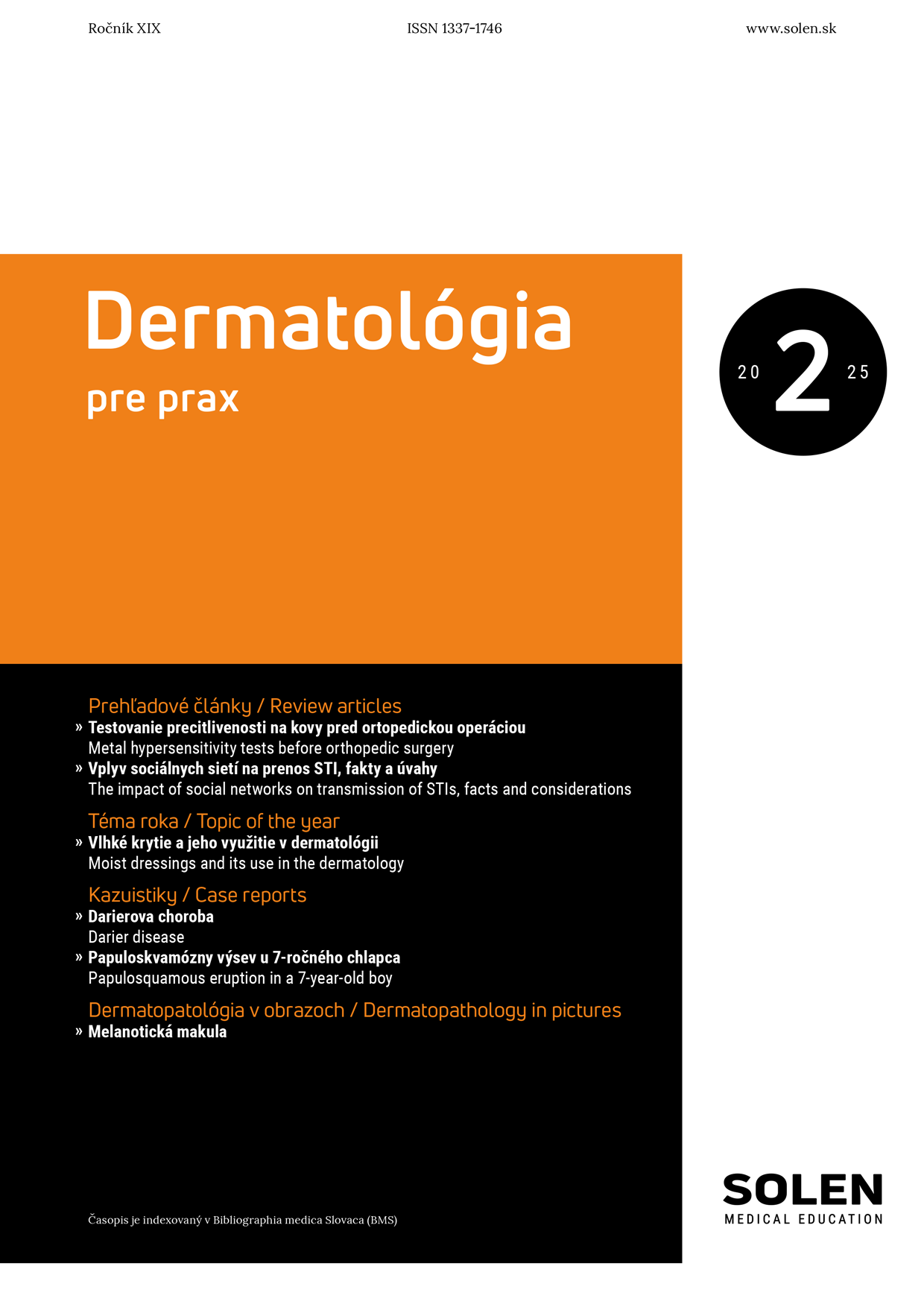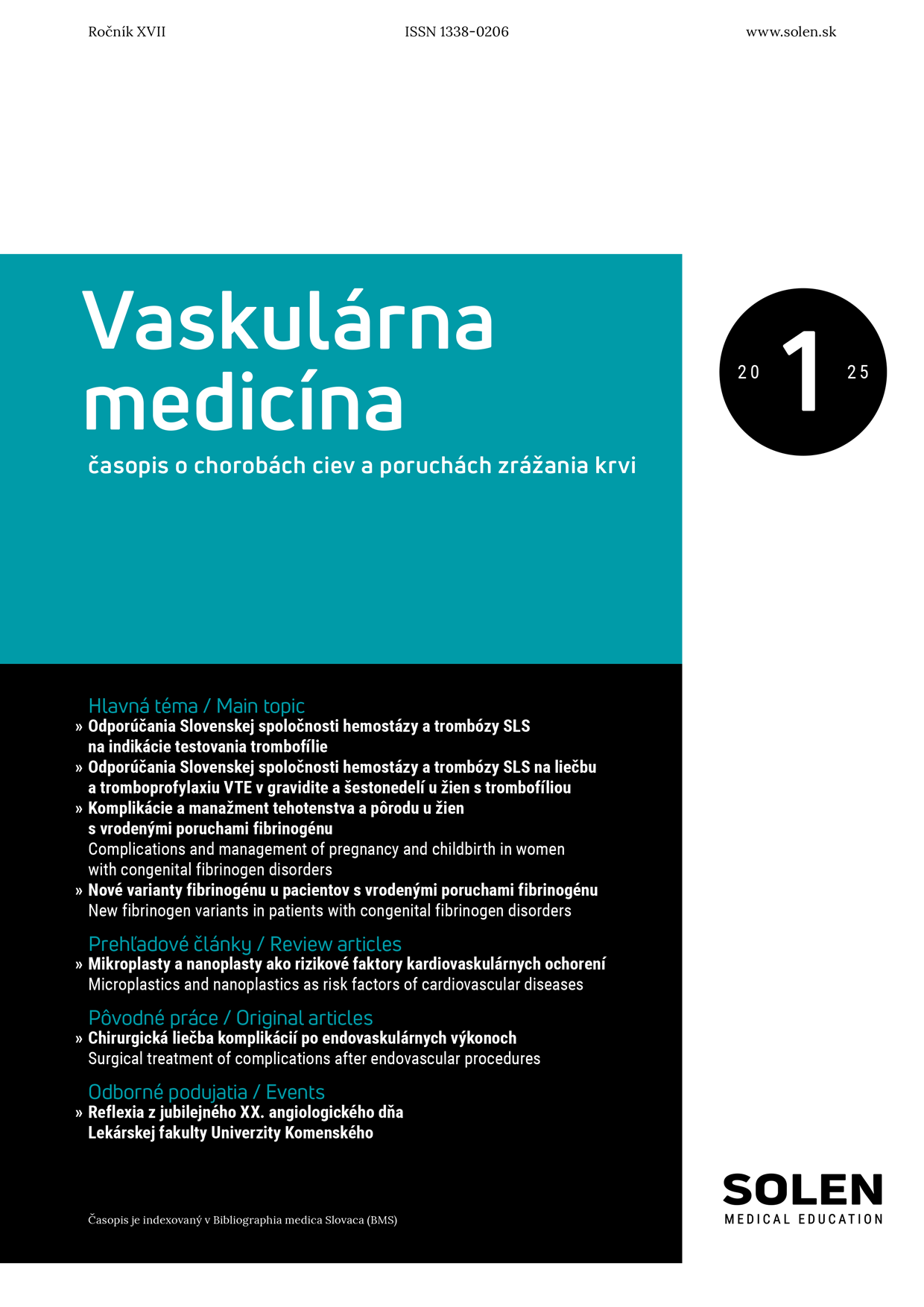Neurológia pre prax 5/2010
Pyridoxine-dependent epilepsy – new trends in diagnosis and treatment
Pyridoxine dependent epilepsy is a rare autosomal recessive hereditary disorder causing a severe intractable epileptic seizures presenting typically in prenatal and neonatal period, rarely in early infancy (age up to 3 years). Pyridoxine dependent epilepsy, caused by metabolic disturbance of pyridoxine, is associated with mutations in ALDH7A1 or ALDH4A1 gene. Similar condition, pyridoxal-phosphate dependent epilepsy (also called neonatal epileptic encephalopathy), is caused by mutations in PNPO gene. Pyridoxine dependent epilepsy is successfully treatable using high doses of pyridoxine. Neonatal epileptic encephalopathy is refractory to pyridoxine administration, however responses to treatment with pyridoxal-phosphate. The diagnosis of both pyridoxine dependent epilepsy and neonatal epileptic encephalopathy is based on biochemical and genetic examinations.
Keywords: pyridoxine, pyridoxal-phosphate, pyridoxine-dependent epilepsy, pyridoxal-phosphate dependent epilepsy.


